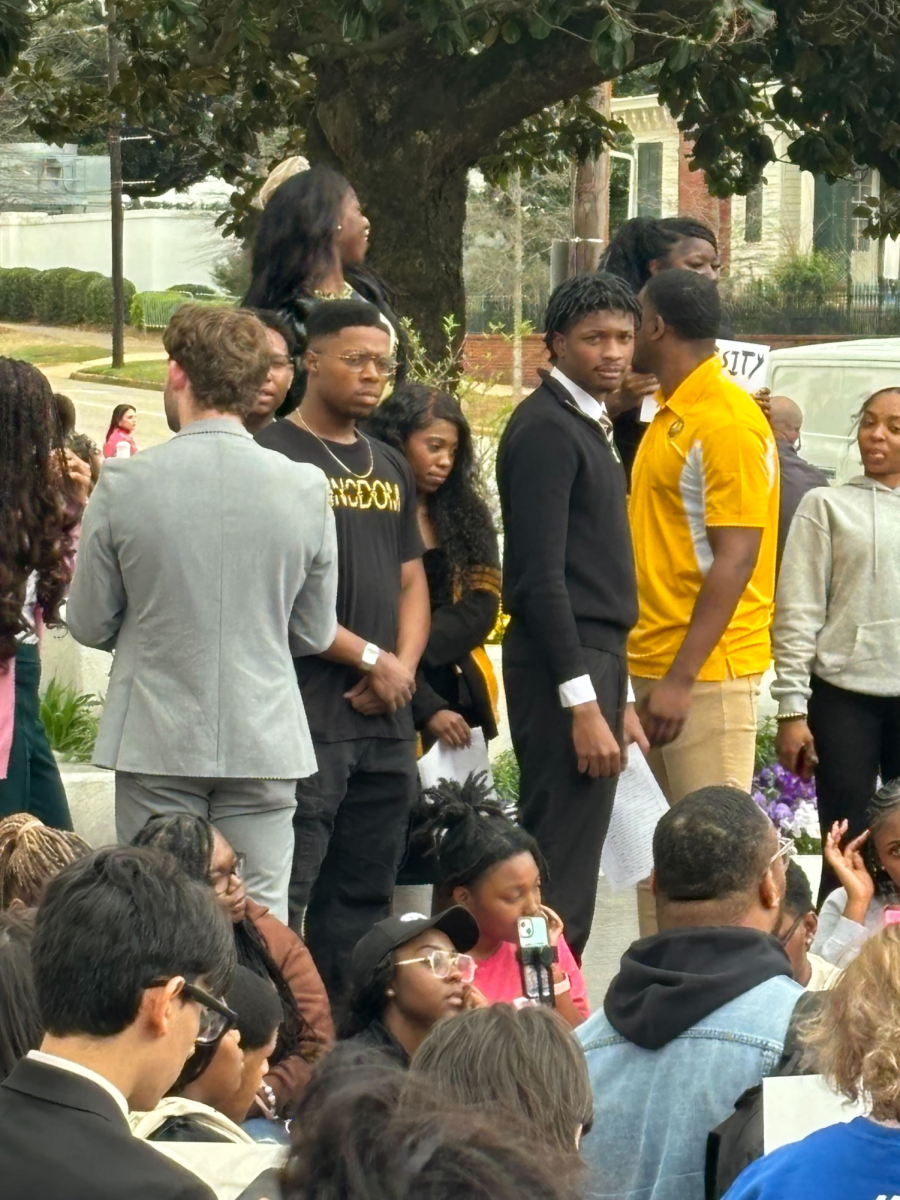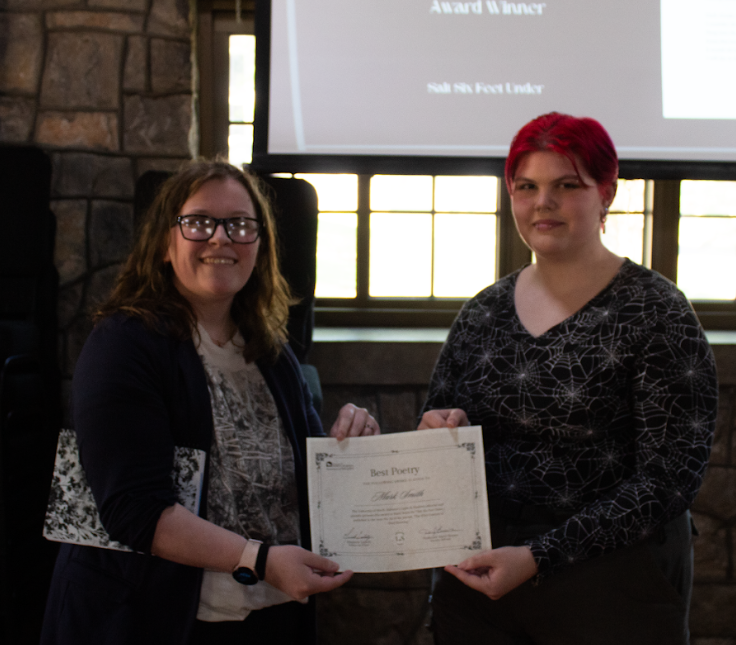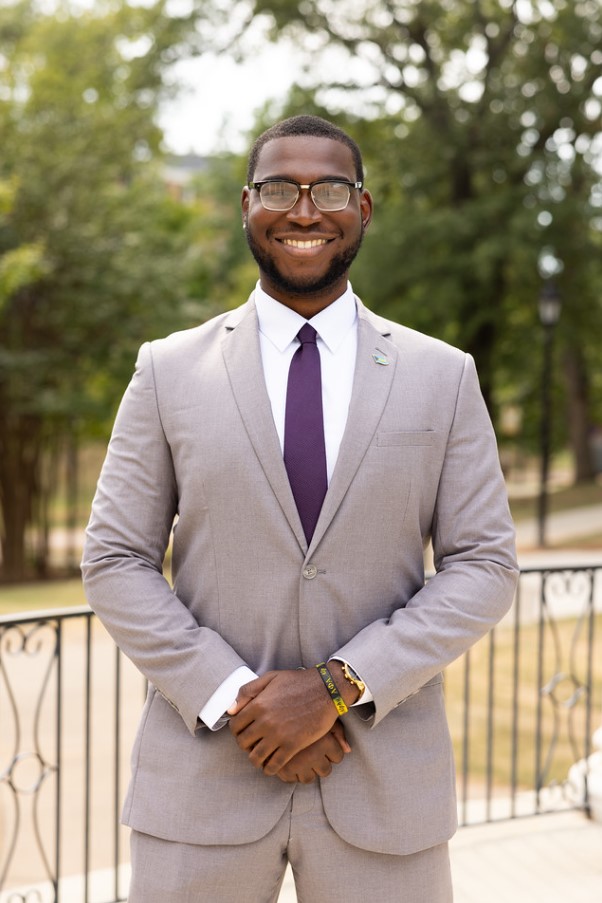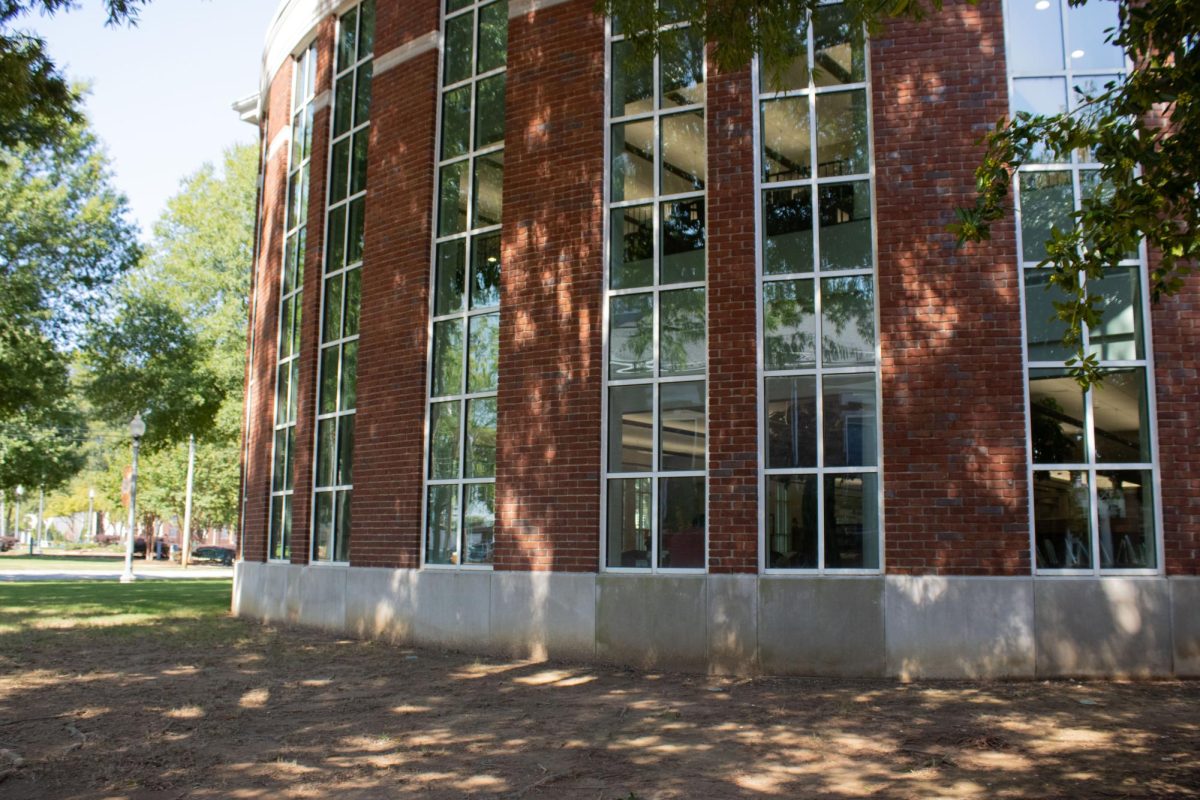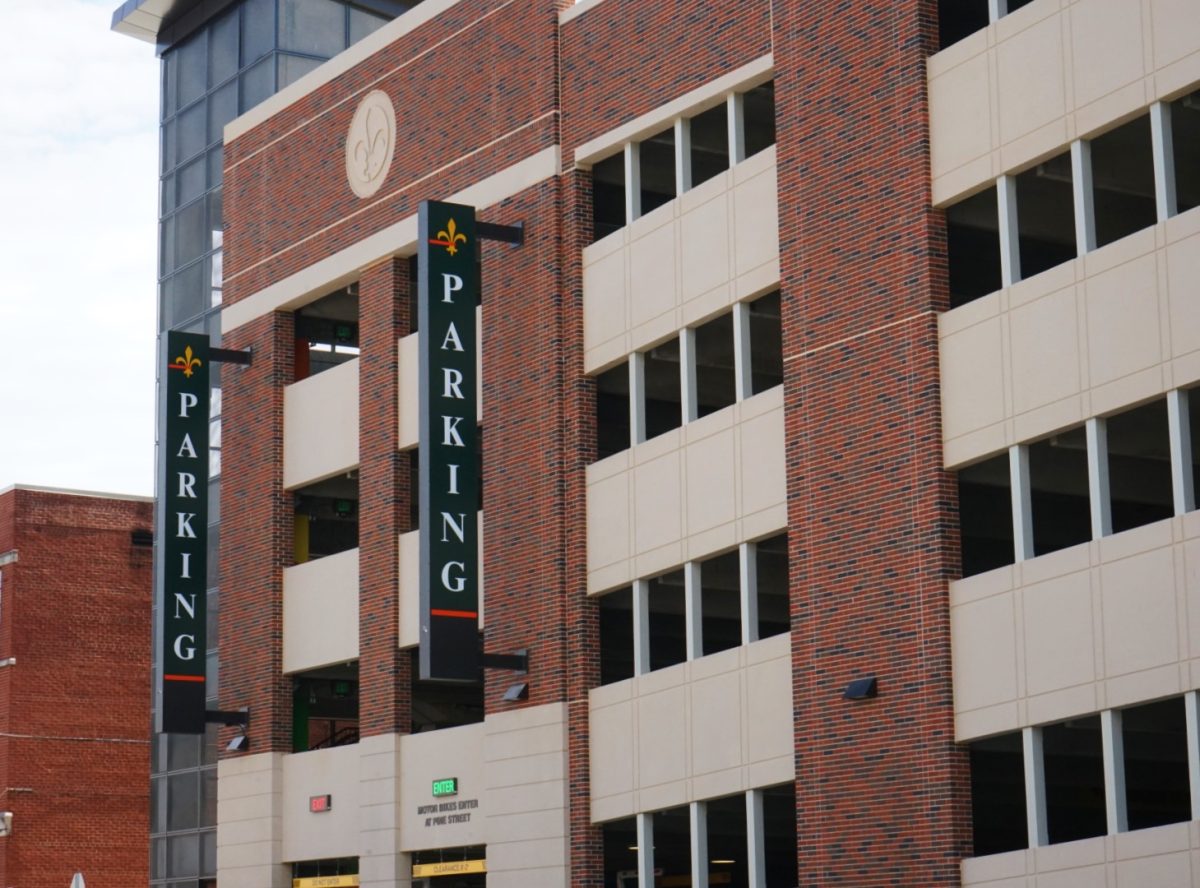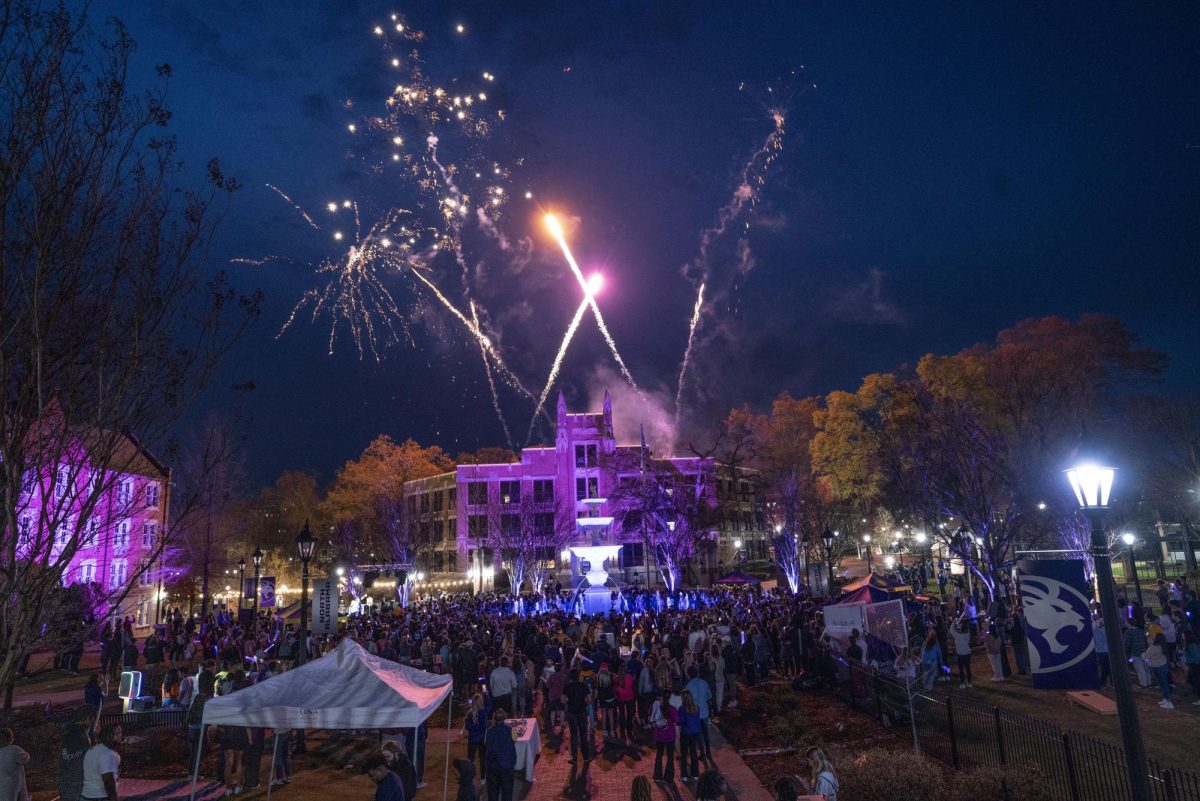UNA student Elijah Winston and associate professor Rachel Winston participated in a demonstration against the Senate Bill 129 bill in Montgomery on Mar. 6.
Winston, who majors in secondary education, said he and his mother traveled to Montgomery because the bill affects the future of education and they “cannot let this happen without doing something about it.”
The bill presents prohibitions to Diversity, Equity and Inclusion programs and divisive topics, which are explained as any bias taken from race, ethnicity, sex, national origin or other, the idea that meritocracy is racist or sexist, that slavery is aligned with the founding principles of the United States and more. Another topic also included in the bill is the usage of restrooms defined by biological gender.
In order to convince legislators to vote against the passing of the bill, UAB student Sydney Testman organized a demonstration involving mainly students from Alabama universities. The participants marched until reaching the front of the Capitol, where head programmer Testman allowed Elijah Winston to speak about his stance on the bill.
“It restricts us to have diversity concepts or discussions or topics in the class from K, which is kindergarten, to higher education, which is college,” the UNA student said in his speech.
Winston also challenged an interpretation of the bill regarding divisive concepts by saying the statement “I am proud to be an American” can be considered divisive when one might not agree with it. He stated freedom of expression was restricted by the bill.
The student’s second point was regarding the bill prohibiting certain diversity, equity and inclusion programs from forcing practices, ideologies or encouraging discrimination toward white people, as he explained.
“There might be some DEI programs that are negative and do [more] harm than good to people, but I correlate that to bad cops,” Winston said. “Just because there are some bad cops, [it] does not mean that we need to remove all cops from our system. That would cause anarchy, and [it] would not help anyone.”
He also includes that even though those programs might exist, he has not seen any yet, and the ones he is a part of are a celebration of community building.
The UNA student said that he expected the officials to witness the protest from outside the main building and be open to discussion.
“[T]hey went into tunnels under the capital to try [to] avoid us,” he said.
However, Winston was able to converse with Philip Pettis, the Alabama representative from District One, and Kevin Lawrence, District 69.
With Representative Pettis, Winston mentions having a receptive and respectful conversation while presenting his points against the bill.
“[Pettis] said he understood where I was coming from and that he saw my two points as good [reasons] for why the bill would affect us,” he said.
With Lawrence, Winston mentioned that the conversation was fantastic. The representative commended him for “coming out of his way” in order to speak to him and said the student was impressive for his age.
The representative and the student engaged in further conversation regarding other bills currently being processed and the importance the vote has for the American youth.
Winston added, “When we do not vote, we are choosing to silence ourselves.”
He was excited for the opportunity to talk to Lawrence, who voted against the passing of the bill. “He has people watching and looking up to him, and I appreciate what he [i]s doing for us in Alabama. I am glad he is standing for what is right,” he said.
The demonstration occurred peacefully and Elijah Winston came back to campus feeling honored for participating.
“What I did affected the UNA community by bringing awareness to what we need to pay attention to: our state, our representatives and what they do in the office,” he said. “I was also able to show that no matter what your age is, you can step up, raise your voice and stand for what is right regardless of what the circumstances are.”
At the end of the day, the bill passed in a 75-28 vote.


